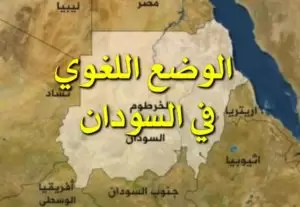الوضع اللغوي في السودان دراسة الوضع اللغوي الاجتماعي بمنطقة التكامل غرب بالحاج يوسف بالخرطوم بحرى نموذجاً
سوسن خالد محمد أحمد[1]
تأتي أهمية دراسة الأوضاع اللغوية في السودان من أنها تساعد على رسم خارطة لغوية إثنية – لبعض مناطق السودان – تساعد على التخطيط اللغوي للسودان , ووضع السياسات اللغوية المناسبة التي تساعد على تنمية وتطور الشخصية السودانية مستقبلاً .
تهدف هذه الورقة الى دراسة الوضع اللغوي في السودان , من خلال دراسة الوضع اللغوي الاجتماعي بمنطقة التكامل غرب بالحاج يوسف بالخرطوم بحري . وتقع هذه الدراسة في إطار علم اللغة الاجتماعي الذي يهتم بدراسة الأوضاع اللغوية عامة , ويعرف فيرجسون الوضع اللغوي بأنه يعني ” الصورة العامة للاستخدام اللغوي في زمان ومكان محددين والتي تتضمن معلومات مثل عدد اللغات المتحدثة, نوعية هذه اللغات, عدد الذين يتحدثون كل منها, تحت أي الظروف وما هي الاتجاهات الشعورية والمعتقدات المتكونة لدى متحدث هذه اللغات حيالها.

